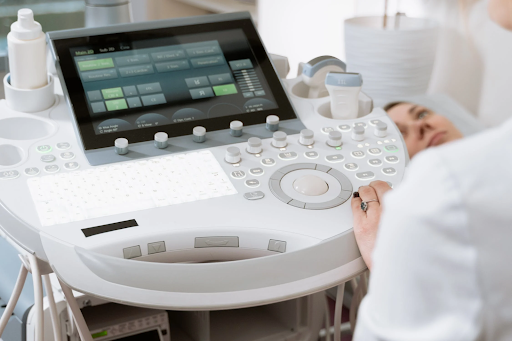Undetected polyps or growth in the bowel’s lining may develop into bowel cancer, the third most prevalent cancer in Australia. Surgery is typically the main treatment and may be combined with chemotherapy and radiotherapy.
According to Cancer Council Victoria, aromatherapy (using essential oils) and other herbal supplementary treatments for cancer have been shown to have beneficial effects. However, these alternatives require further studies and evidence to establish their effectiveness in treating cancer.
Colonoscopy is the most common procedure done to determine abnormalities in the large intestine. Even so, various non-invasive diagnostic techniques have been explored for bowel cancer’s early diagnosis.
These diagnostic procedures include virtual colonoscopy using CT (computed tomography), scans or MRI (magnetic resonance imaging), and abdominal ultrasound. Visit this page to learn more about this procedures.
Abdominal Ultrasound for Bowel Cancer
Several studies have reported the effectiveness of abdominal ultrasound in detecting bowel cancer (colorectal cancer).
Abdominal ultrasound is used to know if cancer has spread to the body and determine the appropriate treatment to use. Doctors often prescribe this procedure to look for an abdominal aortic aneurysm (bulging of the aorta).
A study on colorectal cancers suggested that ultrasonography may be a sensitive diagnostic tool for bowel cancer in patients with abdominal distension.
The predictive values of transabdominal ultrasonographic (abdominal ultrasound) findings in the assessment of bowel disorders were tested in a study published in the Scandinavian Journal of Gastroenterology.
The study reported that abdominal ultrasound was highly predictive, and positive abdominal ultrasound findings helped diagnose bowel disorders. However, the findings were not disease-specific.
Meanwhile, the negative ultrasound exams did not exclude the pathologic bowel processes.
Another research published in 2005 supports this assertion. According to the study, abdominal ultrasound showed high specificity, positive predictive value (PPV), and negative predictive value (NPV) in detecting bowel cancer.
Moreover, the study suggested that the combination of rectoscopy and ultrasonography rules out colorectal carcinoma (malignant tumor).
In a routine ultrasound of 95 patients with colorectal carcinoma, the sonography procedure detected the patients’ tumors. It was found that 22 out of the 23 bowel tumor diagnoses were correct.
The results suggested a 95.5% sensitivity rate of ultrasound procedure in determining colorectal carcinoma.
The same study noted that routine abdominal ultrasound could detect non-suspected colonic tumors. However, it was emphasized that routine ultrasound should not be the primary choice in screening bowel tumors.
Further studies are needed to validate these presumptions.
Other Diagnostic Procedures to Detect Bowel Cancer
Virtual Colonoscopy
This procedure is certainly less invasive than the traditional colonoscopy. It uses X-ray exams with CT scans.
Virtual colonoscopy is a painless procedure that aims to detect polyps growing inside the colon. Several three-dimensional images can be produced using this method.
Some studies have suggested that virtual colonoscopy has the same detection rate as colonoscopy.
Other abnormalities in the liver, pancreas, and kidney may also be detected through this diagnostic method.
Biopsy
Biopsies are done by taking out a small amount of tissue from the body during a colonoscopy and examining it under a microscope. A biopsy is the sole diagnostic procedure that can determine colorectal cancer.
Risk Factors of Bowel Cancer
Although bowel cancer is prevalent in older people, some factors may put a person more at risk of having bowel cancer.
Weight and Diet
According to Cancer Research UK, eating too much processed food and red meat and not including enough fiber in the diet increases bowel cancer risk.
Instead, try to include more fish and chicken in your meals. You can also improve your fiber intake by consuming more whole-grain foods.
This simple diet modification can also lower the risk of obesity, which can cause bowel cancer. Maintaining an active lifestyle can help prevent weight and health issues.
Smoking and Drinking
People who smoke and drink alcohol are more vulnerable to bowel diseases. Statistics show that 7% of people have bowel cancer due to excessive smoking, while 6% of bowel cancer is caused by alcohol.
Other Medical Conditions
Bowel cancer may be inherited. If your family has a history of this type of cancer, you are more likely to have it, too.
Moreover, people with other inflammatory intestinal conditions, like Crohn’s disease and other inherited diseases, are more likely to develop bowel cancer.
When to Consult Your Doctor
You should seek your doctor’s advice if you observe the following persistent symptoms:
- Rectal bleeding or blood in your stool
- Weakness
- Fatigue
- Changing the consistency of your stool (diarrhea and constipation)
- Abdominal discomfort (cramps and gas)
- Weight loss
The prevalence of cancer symptoms varies per person. Some bowel cancer patients do not experience any symptoms at all during the early stages of the disease.
Individuals 50 years old and above must undergo routine bowel screening to prevent bowel cancer risk factors.
